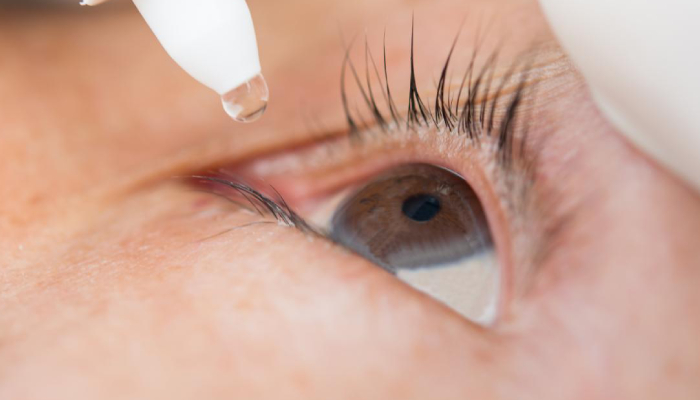What Are The Different Medical Treatment For Bipolar Disorder?

What Are The Different Medical Treatment For Stress And Anxiety?
April 10, 2020
The World Of Antidepressants
April 14, 2020What Is A Bipolar Disorder?
Bipolar disorder is known as a manic depressive disorder where ups and downs of depression are more severe. It causes a rapid shift in thinking, energy, mood and behaviour. It could make a person behave in two extremes. The person might have heights of mania or could be low in depression. This is not like the mood swings you have. Manic episodes will be so severe that you will do things impulsively. And during depressive episodes one will have huge guilt over behaviour.
Bipolar disorders can be very different in different people. The severity and frequency of symptoms vary. Some people may just have the mania or depression and others will have both. Bipolar disorder will have four different types of mood episodes, namely, depression, mania, hypomania and mixed episodes. Living with bipolar disorder is challenging. One will require treatment and a good support system to develop healthy coping skills. There are good medical treatments for bipolar disorder. It forms the foundation and apart from this therapies and self help can also help reduce the symptoms.
Right Medication For Bipolar Disorder
The right kind of medication can help bring down mania and prevent relapses. Medications for bipolar disorder will have side effects and you will have to limit it to a short term treatment plan. The regular antidepressants do not treat bipolar disorder. In fact it can make the condition worse. Antidepressants should be had with mood stabilizers so your manic episodes don’t peak. Instead of taking mood stabilizers drugs it is good to make use of natural mood stabilizers you get when you regularly exercise, meditate and by having a strict sleep schedule. Along with medication, you need to have therapies to cope with the challenges of bipolar disorder. Discuss with the doctor before you decide to alter a medication. You need to take medication a little longer even after symptoms disappear. This will prevent sudden relapse.
Response to medications is different from person to person. Some may develop side effects and some may not. There are people who get quickly cured and a few will need long term treatment plans. It takes a while to find the right medication and its dosage. A few medications used to treat bipolar disorders are, Lithium, anticonvulsant mood stabilizers, antipsychotic medications, and antidepressants. There are generic drugs and branded ones.

Lithium is a mood stabilizer that helps control symptoms of bipolar disorders. These drugs are used for both manic and depression and are quite effective in treating this condition. Lithium is not effective for mixed episodes of symptoms. Some of the side effects of lithium include, weight gain, drowsiness, tremor, weakness, stomach pain, low concentration, nausea and diarrhoea. Anticonvulsants were originally developed for treating epilepsy but they also reduce symptoms of mania and mood swings. For aggressive manic episodes, doctors may prescribe antipsychotics. These drugs help you control your manic episodes and it should be taken along lithium and anticonvulsant drugs.
Other Medications And Treatment For Bipolar Disorder
Mood stabilizers usually take more than a week to show its complete effect. During this time, the doctors will prescribe medications to relieve agitation, anxiety or insomnia. Antidepressants or sedatives like benzodiazepines can be used only after mood stabilizers begin to work. Calcium channel blockers can also have mood stabilizing effects. It is mostly used to regulate blood pressure and heart problems. For people who cannot tolerate anticonvulsants or lithium, CCB is a good option. It has fewer side effects but less effective. Lithium treatment and people with bipolar disorder have abnormal thyroid hormone levels. Hence, doctors will add thyroid medication in the treatment plan.
Bipolar medications will have to be taken responsibly. You need to take medications as prescribed. You need to discuss with the doctor before you make changes to the medications. If you have any serious side effects, doctors can help alter the brand or dosage. Keep record of all the side effects you experience. You need to record the severity and when they occur. You must take the log to the doctor to discuss the side effects and change the dosage. Try to avoid drug interactions when you take over the counter medications and herbal supplements. Certain food supplements when taken along with bipolar medications can cause serious side effects and will also make medication less effective. Alcohol can also interfere with medications.
Apart from medications, follow a healthy diet and have a solid support system. Consume a diet rich in omega 3 fatty acids. This will lessen the symptoms of bipolar disorder. Also, it will reduce the side effect of weight gain due to medication. Avoid alcohol, caffeine and drugs. A good social network of family and friends can help you face the challenges of bipolar disorder. Participate in support groups and communities. Share your experiences and learn from others. Support from loved ones will make a huge difference in combating bipolar disorder.




